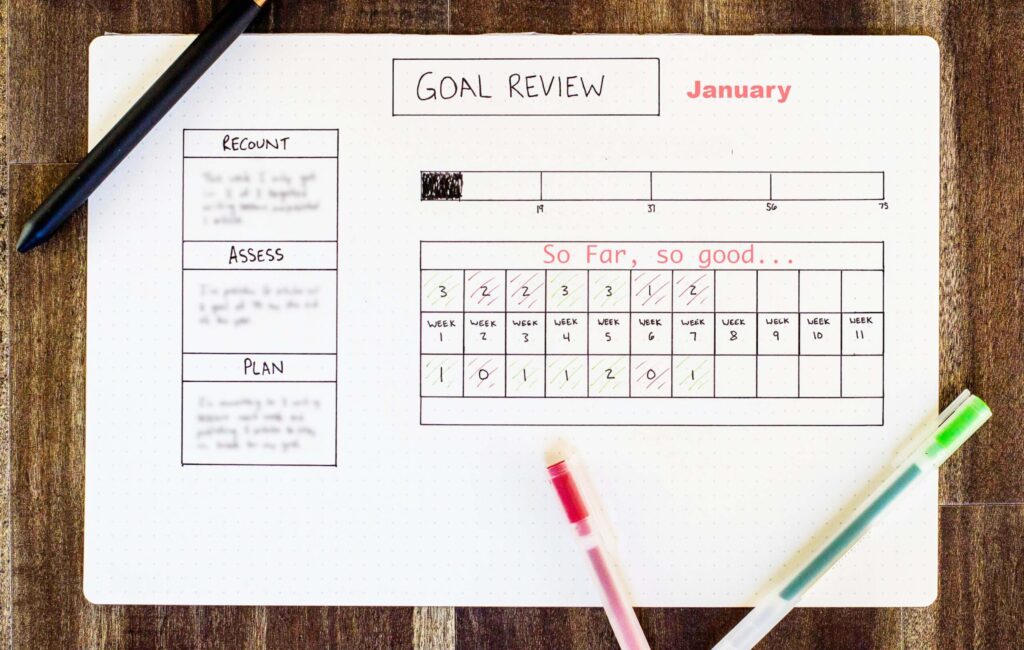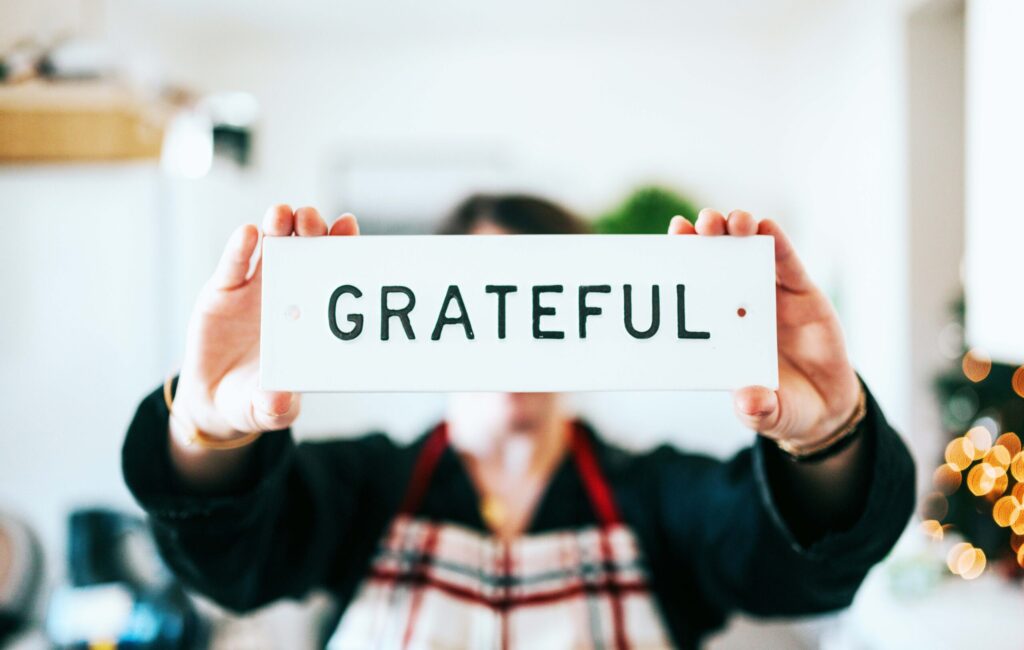Checking Accomplishments on New Year Goals, Reflecting on Progress, and Cultivating Balance as January Comes to an End
As January draws to a close, it is a pivotal moment for introspection and a comprehensive check-in with our mental health and overall health. This juncture marks the culmination of the holiday season, the establishment of new goals, and a transition into the routine of the coming months.
Amidst the winter blues, post-holiday stress, and pursuing our goals, we must pause and reflect. From assessing our resolution progress to combating seasonal affective disorder, this is an opportune time to reinforce self-care routines, realign priorities, and foster connections with ourselves and those around us.

In this context, we explore diverse considerations, ways to mindfully navigate well-being, set sustainable goals, and embark on a journey of self-discovery and fulfillment.
Mental Health, Overall Health and more:
- Reflection on New Year Goals: As January ends, it’s a good time to reflect on any resolutions or goals you set for the new year. Assess your progress, celebrate achievements, and make adjustments if needed.
- Seasonal Affective Disorder (SAD): For regions with winter seasons, January can be challenging due to less sunlight. Checking in on your mental health is crucial, especially if you’re susceptible to Seasonal Affective Disorder. Consider light therapy or other strategies to combat winter blues.
- Post-Holiday Stress: The holiday season can bring both joy and stress. As it concludes, managing any lingering tension or emotional aftermath is essential. Reflect on your experiences and take steps to restore balance.

- Setting the Tone for the Year: January often sets the tone for the rest of the year. Checking in with your mental health now can help you establish positive habits and coping mechanisms that will benefit you throughout the coming months.
- Health Checkup: Use the end of January as a reminder to schedule any necessary health checkups or screenings. Regular health assessments contribute to the early detection and prevention of potential issues.
- Reassessing Priorities: As routines settle after the holiday season, reassess your priorities. Ensure that your daily activities align with your long-term goals and values. Adjustments may be needed to maintain a healthy work-life balance.
- Weather-Induced Lifestyle Changes: Weather conditions in January often influence lifestyle habits. Whether staying indoors more or changing your exercise routine, be mindful of how these changes impact your overall well-being.

- Financial Check-In: January is a common time for budgeting and financial planning. A stable financial situation can positively influence mental health. Take stock of your financial goals and make adjustments as needed.
- Social Connections: The end of January can be a good time to reconnect with friends and loved ones. Social connections play a significant role in mental well-being, so make an effort to nurture relationships.
- Self-Care Reinforcement: Reinforce the importance of self-care. Evaluate your self-care routines and make sure they are sustainable and fulfilling. Adjustments may be necessary based on your evolving needs and circumstances.
- Mindful Goal Setting: Take a moment to review and refine your goals for the year. Ensure they are realistic, achievable, and in alignment with your values. Adjustments may be necessary based on changing circumstances.

- Gratitude Practice: Cultivate a gratitude practice by reflecting on the positive aspects of your life. Expressing gratitude has been linked to improved mental well-being and overall life satisfaction.
- Hydration and Nutrition: Assess your hydration and nutrition habits. January often follows a season of indulgence, making it an opportune time to refocus on balanced and nourishing food choices for better physical and mental health.
- Sleep Quality: Evaluate your sleep patterns and quality. Lack of sleep can significantly impact mental health. Establish a consistent sleep routine and create a conducive sleep environment for well-being.
- Digital Detox: Consider a digital detox in a world dominated by technology. Evaluate your screen time before bedtime and establish boundaries to promote a healthier relationship with technology.

- Creativity and Hobbies: Reconnect with your creative side or engage in hobbies that bring you joy. January can be a great time to explore new activities or revisit old passions to impact mental health positively.
- Nature Connection: Spend time in nature, even if it’s just a short walk in a nearby park. Nature has been shown to have therapeutic effects on mental health, reducing stress and promoting overall well-being.
- Professional Development: Assess your career and professional development goals. January can be an excellent time to set objectives, plan for skill development, or explore new opportunities that align with your aspirations.
- Mindfulness Practices: Incorporate mindfulness practices into your daily routine. Whether through meditation, deep breathing exercises, or yoga, these practices can help manage stress and enhance mental clarity.

- Community Engagement: Get involved in your community, or consider volunteering. Connecting with others through community engagement can provide a sense of purpose and positively affect your mental health.
Regular self-checks and adjustments in these areas can contribute to a holistic approach to well-being throughout the year. Remember, mental and overall health is an ongoing journey; regular check-ins contribute to a more balanced and fulfilling life.
Did you know?
In the context of mental and overall health check-ins at the end of January, studies have shown that engaging in creative activities, such as painting, writing, or playing a musical instrument, can significantly enhance cognitive function and emotional well-being. Creative expression stimulates the brain’s reward system, increasing dopamine levels, a neurotransmitter associated with pleasure and motivation.

So, incorporating creative pursuits into your well-being routine during this check-in can offer unique and scientifically supported benefits for a more holistic approach to health.
A little history:
The emphasis on well-being check-ins, particularly at the end of January, has its roots in a broader cultural and psychological awareness of the importance of self-reflection and health maintenance. In Western traditions, the concept of New Year’s resolution has ancient origins, with the Babylonians making promises to their gods at the start of each year.
The awareness of Seasonal Affective Disorder (SAD) gained prominence in the 20th century as researchers delved into the impact of seasonal changes on mental health. This recognition highlighted the need for individuals to address their mental well-being, especially during the winter months.
The holistic approach to health, encompassing physical, mental, and emotional aspects, has been influenced by diverse philosophies and medical traditions throughout history. Ancient Greek and Roman philosophers, such as Hippocrates, emphasized the interconnectedness of mind and body, laying the groundwork for a holistic understanding of health.
The contemporary emphasis on gratitude practices, mindfulness, and self-care has roots in ancient Eastern philosophies, including Buddhism and Taoism. These traditions have long recognized the importance of cultivating a balanced and harmonious life through practices that promote mental and emotional well-being.



